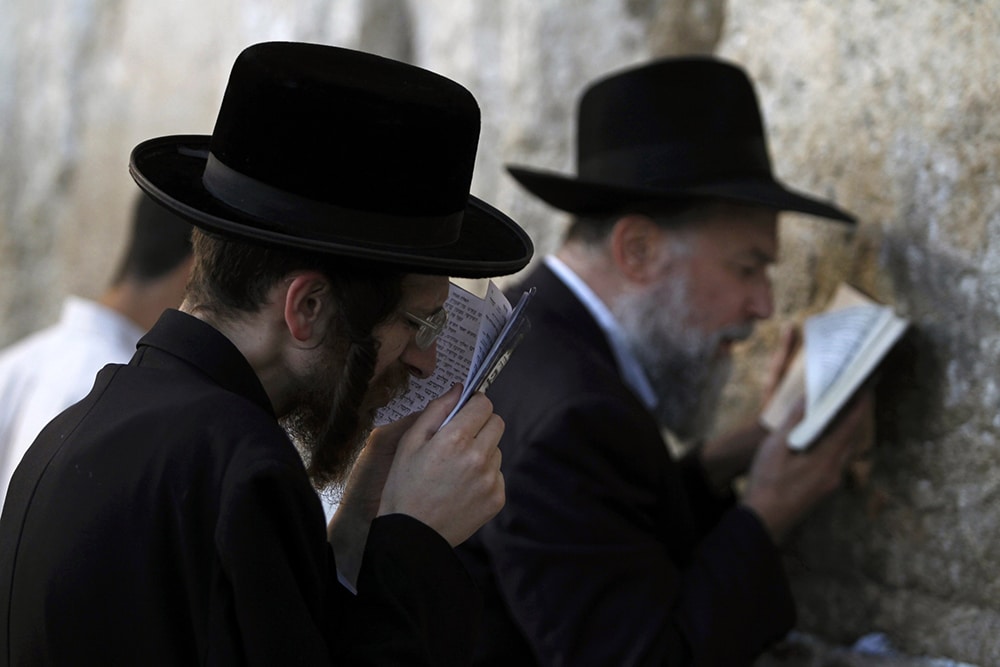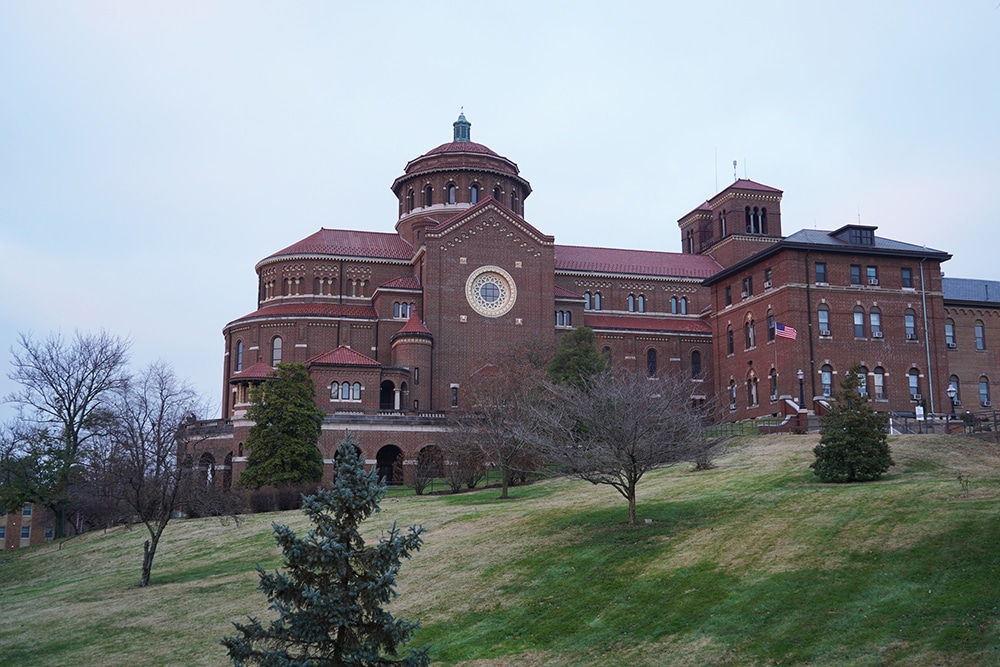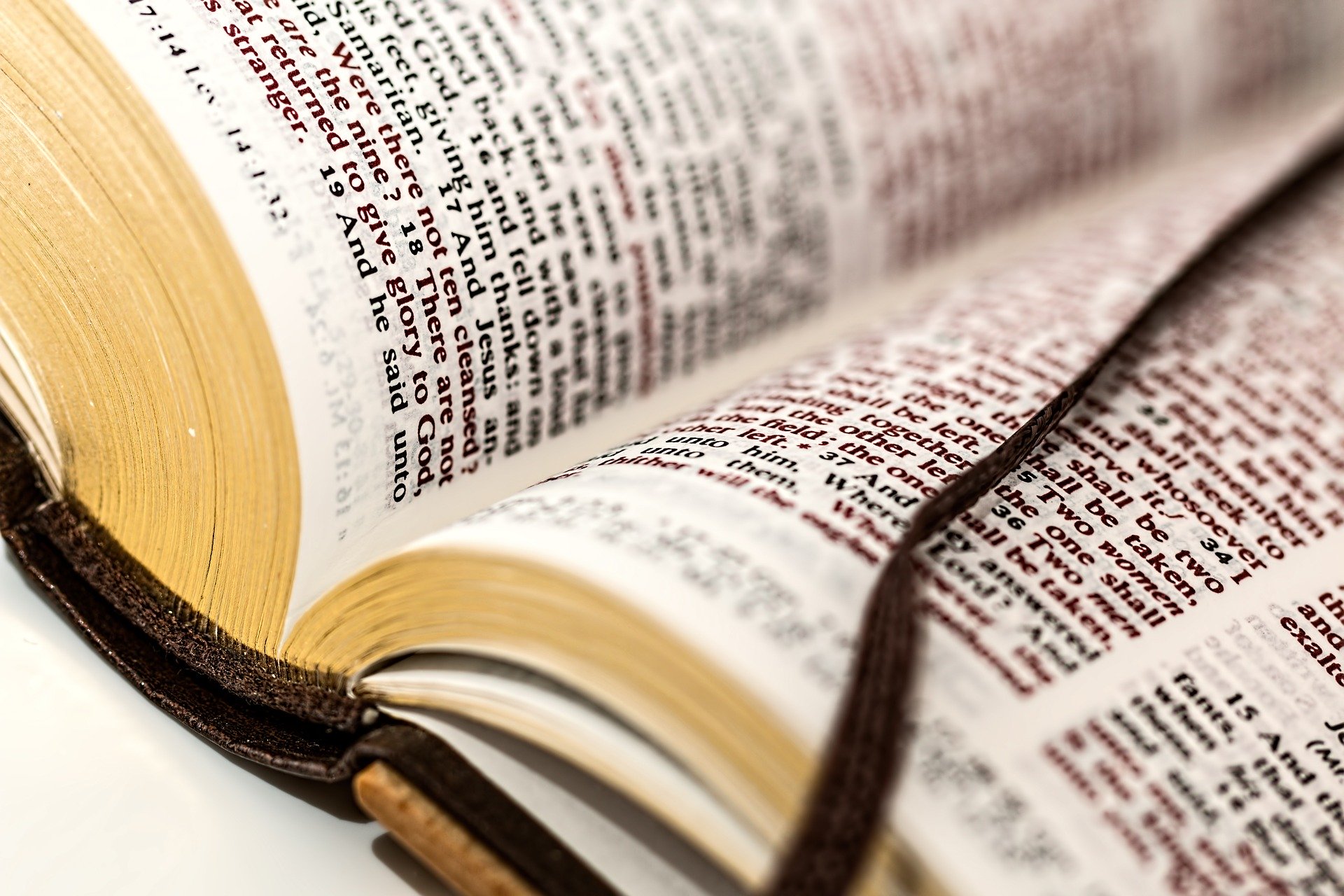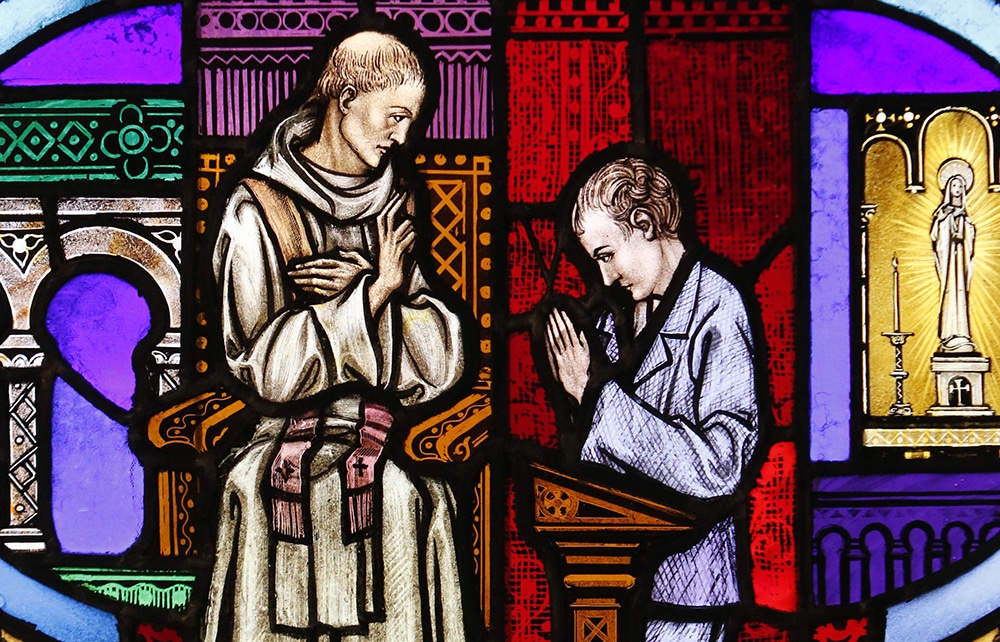 Question: Why do the Catholic Church and Catholic Bibles fail to use the uppercase pronouns when referring to the persons of the Trinity? Does not the Lord’s Prayer say, “hallowed be Thy name?”
Question: Why do the Catholic Church and Catholic Bibles fail to use the uppercase pronouns when referring to the persons of the Trinity? Does not the Lord’s Prayer say, “hallowed be Thy name?”
— Joseph Krueger, Divide, Colo.
Answer: Capitalizing pronouns (e.g. he, him, his, you, your, etc.) referring to the Blessed Trinity has not been a widespread practice in Christian tradition. In fact, these pronouns are never capitalized in the source documents. They are not capitalized in the Greek text of the Scriptures. Neither did St. Jerome capitalize them when he translated these texts into Latin Vulgate.
Even as the biblical texts were translated into English, the pronouns remained in the lower case. This is true of both Catholic and Protestant translation of the Bible. The Douay-Rheims Bible did not use them, neither did the King James. Neither do more than 30 current or old translations that I consulted online.
Outside the Scriptures, the English translation of the Catechism of the Council of Trent used lowercase pronouns, as does the current Catechism of the Catholic Church.
Thus we see the use of the lowercase for pronouns referring to the Divine Persons in biblical text.
Some years ago, at least in English-speaking countries, there was a pious practice of using the uppercase for pronouns referring to members of the Trinity. However, this practice was neither widespread nor ancient.
As for God’s name being holy, this is absolutely true. Thus, Father, Son and Holy Spirit are capitalized, as is the name of Jesus.
But pronouns are not proper names — they are, by definition, words that stand for or point back to proper nouns.
One may well argue that such pronouns should be capitalized, but given the widespread and ancient practice to the contrary, one ought be careful not to impugn motives of impiety for those who do not do so.
Animal treatment
Question: Jesus drove out some demons into a herd of swine, which ran down the bluff, into the water and drowned. Could not such an action be construed as cruelty to animals?
— Peter Tate, Long Beach, Calif.
Answer: Well, the pigs are not really the point of the story, and we ought not get too focused on them. More to the point of the story is the authority of Jesus Christ to cast out demons.
One might respond that the Lord God has the capacity and authority to do this to the pigs, just as you and I might go to our garden, uproot withered tomatoes and replace them with corn. Further, having authority over animals, we also lead pigs to slaughterhouses.
The Lord has reasons. For example, he may have wished to inspire a holy fear in those who saw the action. It was surely a memorable action, and while the townsfolk initially reacted with fear, it would seem they later welcome Jesus back with faith (Mk 5:17-20; 7:31). Hence, Jesus makes use of the animals to bring blessings to human beings, which is fitting.
Culturally, pigs were considered by the Jewish people to be unclean animals. Thus, the pigs also help to fittingly illustrate the uncleanness of demons, and the fate of those persisting in uncleanness.
Msgr. Charles Pope is the pastor of Holy Comforter-St. Cyprian in Washington, D.C., and writes for the Archdiocese of Washington, D.C., blog at blog.adw.org. Send questions to Pastoral Answers, Our Sunday Visitor, 200 Noll Plaza, Huntington, IN 46750 or to msgrpope@osv.com. Letters must be signed, but anonymity may be requested.






